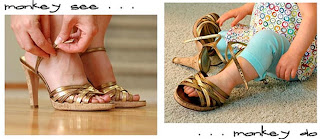What is learning? “learning is the acquisition of knowledge & memory is the storage of internal representations of that knowledge” (Blakemore, 1988)
There are two learning theories and they are :
Behavioural learning theories such as the classical theory ,this occurs when a stimulus that elicits response is paired with another stimulus which initially does not on its own, over time this stimulus causes similar response because its associated with the first the other stimulus. This was first demonstrated on dogs by Ivan Pavlo a Russian scientist doing a research on digestion of animals. (Solomon, Bamossy, Askegaard, & Hogg, 2010)
Cognitive Learning such as Latent learning is when you learn a new concept , but the knowledge is not immediately expressed. it be not be in available to your consciousness, until specific events needs the knowledge to be shown. For instance a child may observe a parent setting the table or tightening a screw, but does not act on this learning for a year; then he finds out later on that he knows how to do these.
In a classical experiment, Tolman and C.H. Honzik (1930) placed three groups of rats in mazes and observed their behavior each day for more than two weeks. The rats in Group 1 always found food at the end of the maze; the rats in Group 2 never found food; and the rats in Group 3 found no food for 10 days, but then received food on the eleventh. The Group 1 rats quickly learned to rush to the end of the maze to find their food; Group 2 rats did not learn to go to the end; Group 3 acted as the Group 2 rats until food was introduced on Day 11. Then they quickly learned to run to the end of the maze and did as well as the Group 1 rats by the next day.
 Observational learning, also called social learning theory, occurs when an observer’s behaviour changes after viewing the behaviour of a model. An observer’s behaviour can be affected by the positive or negative consequences–called vicarious reinforcement or vicarious punishment– of a model’s behaviour
Observational learning, also called social learning theory, occurs when an observer’s behaviour changes after viewing the behaviour of a model. An observer’s behaviour can be affected by the positive or negative consequences–called vicarious reinforcement or vicarious punishment– of a model’s behaviourMemory refers to the processes that are used to acquire, store, retain and later retrieve information. There are three major processes involved in memory: encoding, storage and retrieval.
Nostalgia
a wistful desire to return in thought or in fact to a former time in one's life, to one's home or homeland, or to one's family and friends; a sentimental yearning for the happiness of a former place or time (dictionary.com)
This is basically when something makes you reminisce, for example listening to a old music tract it will bring back memories of that era.
Nostalgia can trigger any of the senses, this what the some of the advertisement try to do, for example the Hovis advert where the boy goes through a history is a very good example which targets everyone has it triggers all memories from the past their for parent, grandparents etc.
During the recessiont the business started to use Nostalgia, marketers are trying to tap into fond memories to help sell what few products shoppers are still buying. The time-machine tactics are primarily evoking four decades — the 1950s through the 1980s.
“It’s about yearning for the past, a simpler time, even though the ’60s and ’70s were not simple,” said Frank Cooper, chief marketing officer for sparkling beverages at the Pepsi-Cola North America Beverages unit of PepsiCo.

No comments:
Post a Comment